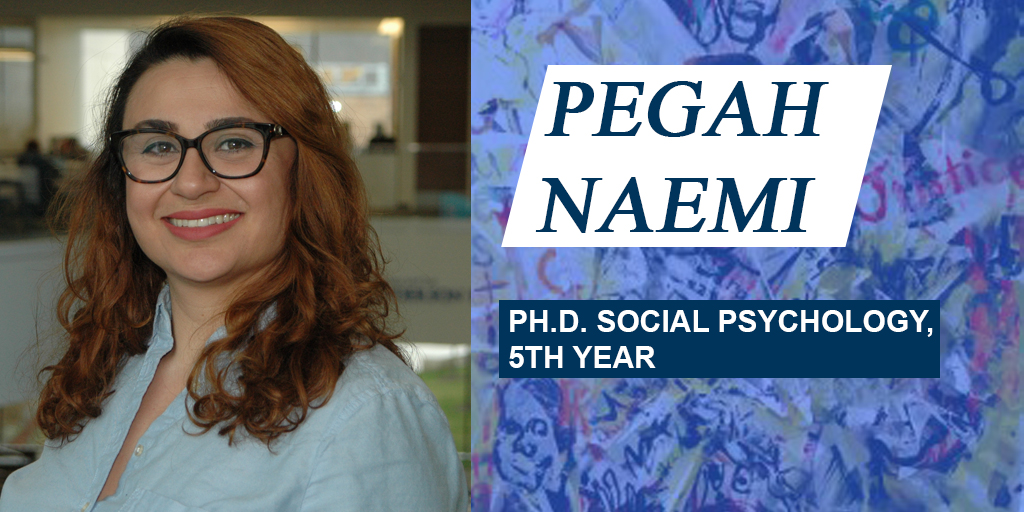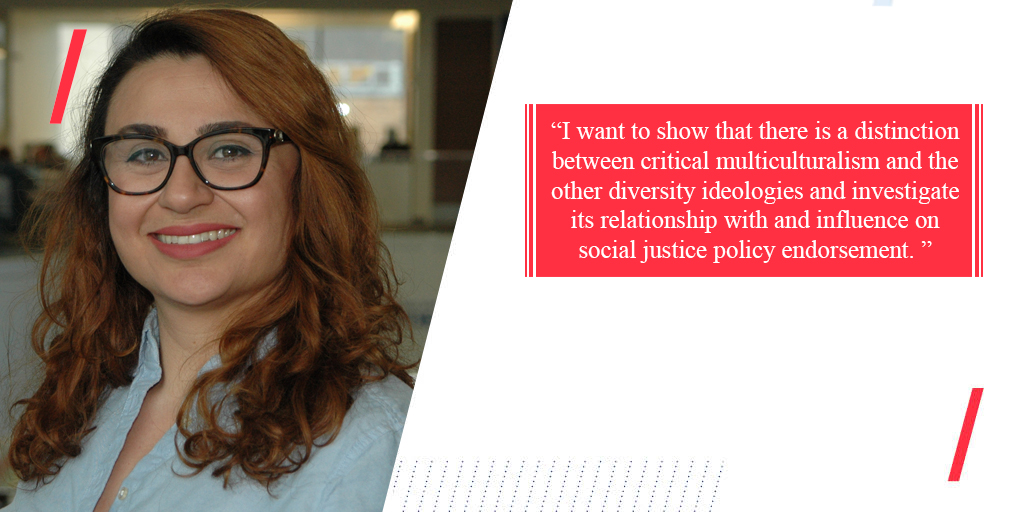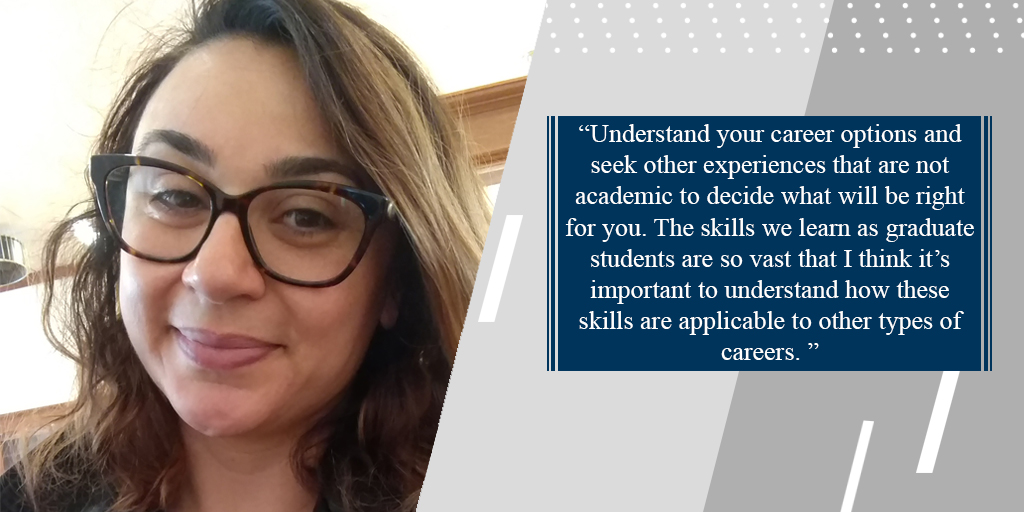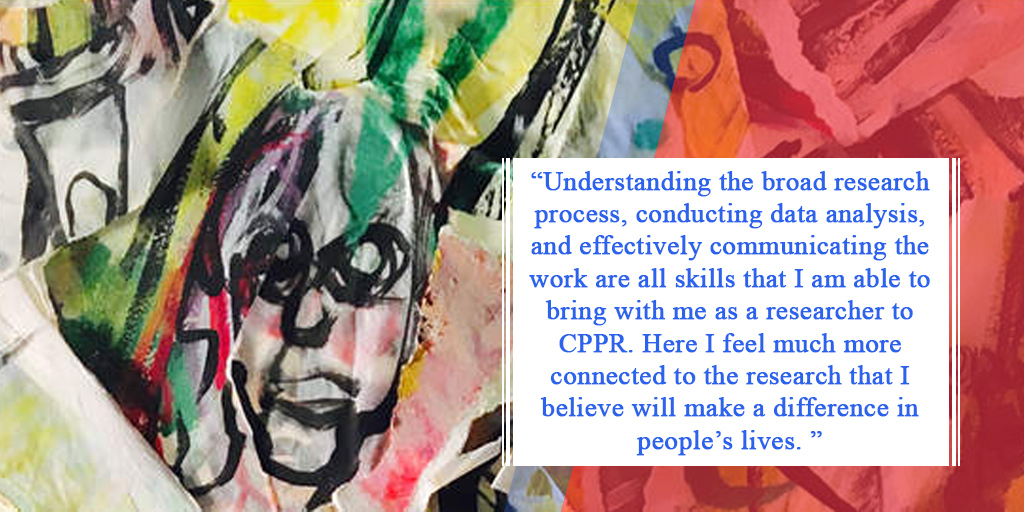
Hometown: Santa Monica, CA
What are your research interests and why did you choose them? Was there a moment when you decided this is what you wanted to study? What was that journey like?
My current work draws upon cultural psychology and decolonial perspectives to interrogate and resist dominant epistemologies of social issues and practices. I can’t say that I chose this, necessarily, but rather I was distraught by mainstream academia and the ways in which teachings of “good science” was being dispelled to students. I needed to navigate this system in a way that resisted its notions of “truth” and cultural psychology and decolonial perspectives provided that path for me. This journey was difficult at times especially because I was attempting to push past dominant hegemonic perspectives which is not always an easy task to take as a student of color.
Tell us about your PhD thesis:
For my dissertation I am examining an(other) ideology called critical multiculturalism which recognizes both the contribution and participation of marginalized people in social and political domains and challenges oppressions that are perpetuated through dominant social norms. I decided to explore this ideology due to the problems associated with mainstream diversity ideologies (e.g. identity-blind emphasis of colorblind ideology, or superficial celebratory emphasis of cultural differences without regard for issues of power and oppression as with mainstream multiculturalism). I want to show that there is a distinction between critical multiculturalism and the other diversity ideologies and investigate its relationship with and influence on social justice policy endorsement.

What is one thing you think everyone should know about your research project or research interests? This might be a commonly held belief that your research questions or complicates.
One thing that I would want everyone to know is although I think the idea of diversity and multiculturalism is well intentioned, I don’t think we’ve reached a place where we are conceptualizing it or practicing it in a way that is critical towards true inclusion of marginalized people. Partly this is because current ideologies of multiculturalism fails to disrupt the problems that are inherit within institutions.
Where are you conducting your research?
I am conducting my research online using samples from large survey groups such as Amazon Mechanical Turk.
What advice would you give students applying for research funding opportunities?
Grant writing is an art. It is one of the hardest things I have ever had to do and, unfortunately, the first class about grant writing (the mechanics behind how to write a good grant proposal) that was offered wasn’t until my 4th year. My advice would be start practicing soon and find a mentor who will help you work on your grant writing skills. Along the same lines, my second piece of advice is try to convey how your work is important and relevant to non-experts. People in your field will “get it” but often times they aren’t the ones funding your research. Drop the fancy jargon, get out of the weeds of the technical explanations, and make your work accessible to others so they understand why your work is important and worth funding.

Give a shout-out to a professor, mentor, advisor, or someone at KU who has helped you?
My advisor, Dr. Glenn Adams, has been helpful and supportive in helping me think through what a critical multiculturalism means; I am grateful that he too saw a need for change. There are a handful of folks who may not think they have had direct impact in helping me but the times they took to hear my thoughts, ask questions, and see me as researcher with something to offer has given me strength to keep pushing forward when often times I was ready to leave altogether. These shout outs go to Dr. Jennifer Ng, Dr. Clarence Lang, and Dr. Teri Garstka.
What is the most valuable experience you have had while studying at KU?
The most valuable experience I had studying while at KU was learning how to build my own path. Your mentors and other professors will give you advice based on their own experiences as previous graduate students, however, your path is all yours. Understand your career options and seek other experiences that are not academic to decide what will be right for you. The skills we learn as graduate students are so vast that I think it’s important to understand how these skills are applicable to other types of careers.

What do you plan to do after you graduate from KU?
I am happy to say that I am a Research Assistant, Senior with the Center for Public Partnerships and Research (CPPR) at KU. It is a huge achievement for me to gain my first career job before graduating. At CPPR we seek to optimize the well-being of children, youth, and families in the state of Kansas and beyond. We work toward social change and innovation through various channels such as helping community partners effectively use data to more efficiently and effectively do their work with families, and using analytical perspectives to understand and address complex social problems, just to a name a few. As a graduate student I often contemplated about my career path. Most academics encourage students to follow in their footsteps in gaining academic careers, but this wasn’t the path for me. I didn’t feel compelled to remain at an institution to continuously do research and publish in academic journals. I wanted to reach my community in a much bigger and impactful way and working with CPPR was just the right fit. I am able to use all of my skills as a graduate student and apply them to the projects that I currently work on. Understanding the broad research process, conducting data analysis, and effectively communicating the work are all skills that I am able to bring with me as a researcher to CPPR. Here I feel much more connected to the research that I believe will make a difference in people’s lives.

What motivates you?
These days I feel tired. I bet most graduate students can relate. Some days I find it difficult to find the motivation to work my job at CPPR and finish my dissertation, but I keep going because I am motivated to do my part to disrupt social inequalities and impact social change, even if that impact seems small. Doing my dissertation work on critical multiculturalism is a way to get people to have more critical conversations about diversity in our community. My work may not be the main catalyst for social change but if it gets a few people to stop and think about an issue beyond what they think they already know, I’m motivated to keep doing this research.
Be like Pegah. Find out what motivates you in your respective field and seek out ways in which you can utilize your knowledge to make a difference. For more information about KU’s Social Psychology program, visit their web page and learn more about the opportunities they offer to students. Additionally, be sure to check out the CPPR website. If this work interests you, they are currently hiring all sorts of positions.